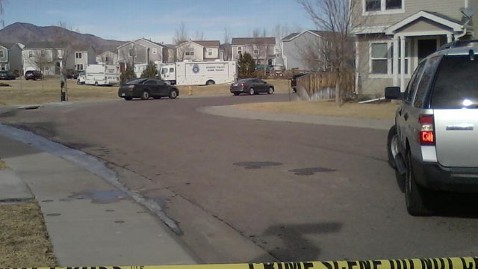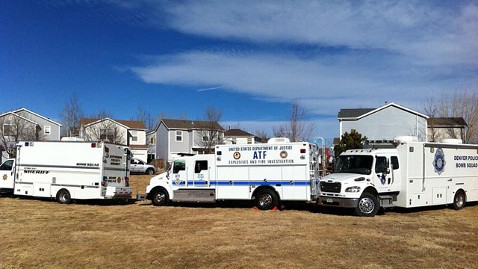STORY HIGHLIGHTS
- NEW: Te'o says he was embarrassed to discuss girlfriend upon learning she was fake
- NEW: But while admitting some were misled, he says he "didn't lie" publicly
- Te'o has his first on-camera interview since news broke of the girlfriend hoax
- "I wasn't as forthcoming about (the story), but I didn't lie," he tells Katie Couric
(CNN) -- He had wanted to help someone in need, this beautiful girl who had been through so much. And he ended up falling for her. They had much in common -- a strong faith, their Samoan heritage, common values -- and clicked, even though they'd never met face-to-face.
Their relationship ended, the first time, in September when he got a call from her hysterical brother telling him the woman he knew as Lennay Kekua had died, one day after leaving the hospital where she was being treated for leukemia.
Two months later, the relationship unraveled again, this time when he got another call from someone who claimed she was Lennay, very much alive.
In the weeks to follow -- until and after Deadspin broke the story January 16 that Lennay Kekua didn't exist, despite Te'o's repeated references to her and her death in interviews -- the Notre Dame star player admitted feeling embarrassed, scared and overwhelmed.
Notre Dame star Manti Te'o
HIDE CAPTION
<<
<
1
2
3
4
5
6
7
8
9
10
11
12
13
14
>
>>
In his first on-camera interview since then, Te'o said that, publicly, he'd always been truthful.
"For people feeling that they were misled, that I'm sorry for," he told Katie Couric, on an episode of her talk show that aired Thursday. "I wasn't as forthcoming about it (as I could have been).
"But I didn't lie."
Then why, Couric asked, had he said the two met through his cousin and at a game his sophomore year, when he now says she had reached out to him on Facebook? Why had he told his father that he and Kekua had gotten together once in Hawaii?
And why hadn't he had stronger doubts before this winter? Like how, in their FaceTime chats, her screen always appeared black? Or how every in-person meeting they set up fell through, like when she was hospitalized or the time her brother had borrowed her car?
Or how odd was it that, in the months he'd gotten to know her well, a 22-year-old woman had a near-death accident then came down with cancer? And through all her struggles, why didn't he visit her once in the hospital -- even when he was in Southern California, like her, and she was in a coma?
Te'o said he understands why people might doubt their relationship, and him. But he told Couric that his feelings in the relationship -- and after the supposed death -- were authentic.
"What I went through was real. The feelings, the pain, the sorrow ... that was all real," said the standout linebacker and Heisman runner-up. "That's something I can't fake."
Te'o admits lying to father, not to others
The two, Te'o at Notre Dame and Kekua at Stanford University, first got acquainted his freshman year, after she reached out to him on Facebook, he said. Those first few years, they would converse but "it was a friend relationship," Te'o told Couric.
Their relationship began to go to another level, he explained, during his junior year. As it did, Te'o admitted to having his doubts, even reaching out to some others to confirm Kekua was real.
"That was my way of saying, 'Oh she's real, they met her, they've seen her,'" Te'o said of his conversations with friends. "This girl who was in the pictures, and this girl I was talking to must be the same."
But while they talked for hours, they never met face-to-face. Once, Kekua told Te'o she was in his home state of Hawaii, and the two planned to meet. He told Couric she had told him her brother had her car and she couldn't drive to him, but invited him to her hotel.
That meeting never panned out. Still, the next morning, Te'o admitted telling his father the two had, in fact, seen each other. Brian Te'o later mentioned in interviews how his son had met up with Kekua in Hawaii.
That conversation with his father, Te'o told Couric, was "the biggest lie."
"That's the thing I regret most," he said. "That's my way of trying to get my dad's approval of this young lady. Because I knew if he knew I didn't meet her, he would immediately just say no, (it is a) red flag that I obviously should have seen."
The relationship continued. On the talk show "Katie," tapes were played of voice mails left by the woman Te'o said he thought was Kekua. In one, she talked about starting her first session of chemotherapy. In another, she suspiciously called him out after she said another woman answered his phone. In another, she wished him good night: "I'll talk to you tomorrow. I love you so much hon. Sweet dreams."
In an off-camera interview January 18 with ESPN, Te'o said a man named Ronaiah Tuiasosopo was behind the hoax, saying Tuiasosopo had called him earlier this month to apologize. While Tuiasosopo or his father haven't talked publicly, his uncle recently defended him, saying, "It definitely takes two to tango."
Responding to reports Kekua may have been voiced by Tuiasosopo, Te'o said, "It sounded like a woman, but if (a man) somehow made that voice,... that's incredible talent to do that, especially every single day."
A near-death accident then a bout with leukemia
They planned to meet while he was in San Diego, but then she was severely injured in April after being struck by a drunk driver, Te'o said. He could have missed his flight to either Los Angeles or, eventually, Hawaii to be with her, but he didn't.
Manti Te'o denies he was part of girlfriend hoax
"It was a conversation that I didn't want to have with my parents," Te'o told Couric. "To say, 'Uh Mom, Dad, I missed my flight ... because I'm going to see Lennay in the hospital.' "
While she was in a coma at the hospital, Te'o said her relatives held a phone up to her ear and he talked. Nurses said the sound of his voice would cause her breath to quicken, and he'd hear the respirator and "the machines. It was very real."
She awoke from the coma, he said, as he was talking -- whispering his name and causing him to jump for joy, feeling he'd helped her.
"It goes back to what my parents taught me, to always be there for somebody when they need help," Te'o said.
There were more talks in the subsequent months, not just between the two but also involving Te'o's family. He said he was most hurt, most ashamed because the apparent hoax hurt not just him, but his father and mother.
"The belief in this person, the deception, wasn't only with Manti, it was our entire family," his mother, Ottilia Te'o, told Couric. "We had conversations with this person. So in our mind, we had followed the same pattern as Manti."
Te'o: 'I was just scared and I didn't know what to do'
Te'o said he was told that, on September 12, Kekua suddenly started to breathe hard, to sweat and, at 10:47 p.m., she died.
That was the same day his grandmother died. Three days later, he led the Fighting Irish to a 20-3 rout of Michigan State, saying he had been inspired to honor the two women with his play.
"I miss 'em, but I know that I'll see them again one day," he told ESPN at the time.
Even in death, Kekua continued to come up in interviews and elsewhere. She was part of Te'o's story.
Then came the December 6 phone call, from a woman he first thought was Kekua's sister. But then, he recalled, "She said, 'No Manti, it's Lennay.' "
"There was a long silent pause," Te'o said. "And I was angered to say the least."
Despite his renewed doubts, he kept talking -- including at the Heisman presentation on December 8, when he referred to his girlfriend losing her battle with cancer. A Twitter picture sent later that month showing the girl he thought was Kekua, holding a sign with that day's date, convinced him it was all a lie.
But he still didn't know what to do, or what to say.
"Part of me was saying if you say that she's alive, what would everybody think? What are you going to tell everybody who followed you, who you've inspired? What are you going to say?
He added: "I was scared. That's the truth. I was just scared, and I didn't know what to do."
On Christmas Day, he sat down with his parents in Hawaii.
Parents defend Te'o: 'He's not a liar, he's a kid'
This conversation led to one with Notre Dame coaches and administrators. But the school was mum until the Deadspin story came out.
That was followed by many stories as well as speculation about what happened and why. Did Te'o help concoct the hoax to promote his Heisman hopes? He said no. Did he help invent this relationship because he's gay? That, too, isn't true, he said.
It's uncertain how this scandal will affect his standing in the upcoming NFL Draft, set for April. Te'o said he's hoping for the best, though most disappointed in how he's hurt his family.
"The greatest joy in any child's life is to make your parents proud," he said. "The greatest pain is to know that they are experiencing pain because of you."
On the "Katie" show, his mother said she's proud of how her son has handled this entire situation -- saying that, in befriending who he thought was Kekua, he showed he "always puts others before himself."
His father said it's easy to spot the red flags in retrospect. But he said this ordeal hasn't rattled his faith in his son.
"He's not a liar. He's a kid," Brian Te'o said. "He's a 21-year-old kid trying to be a man."
CNN's Eliott C. McLaughlin contributed to this report.













